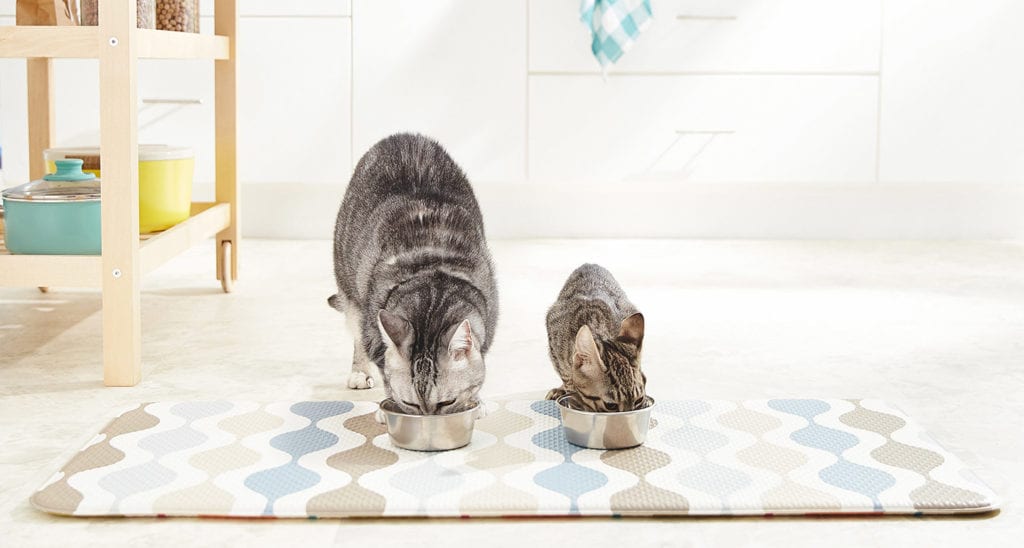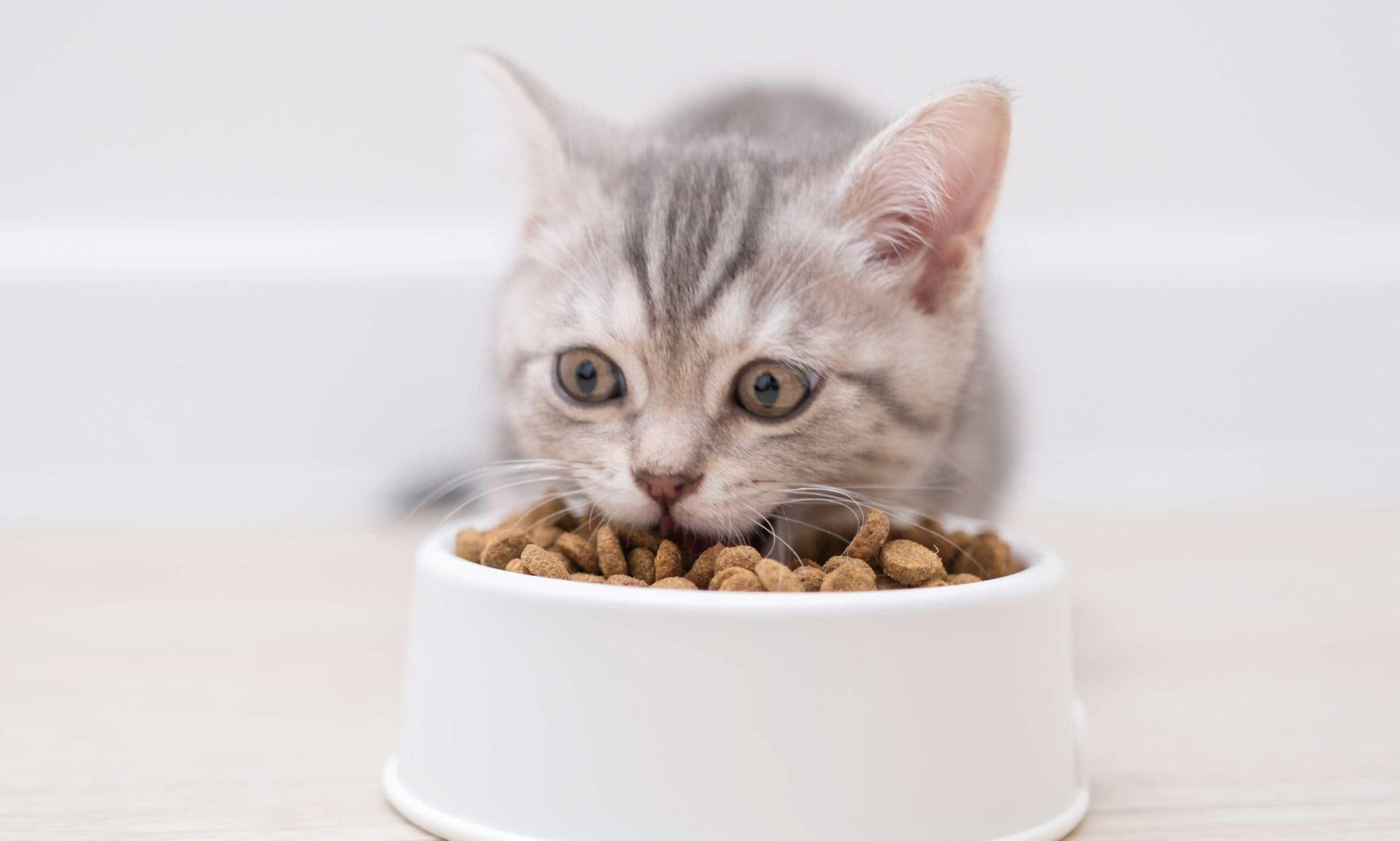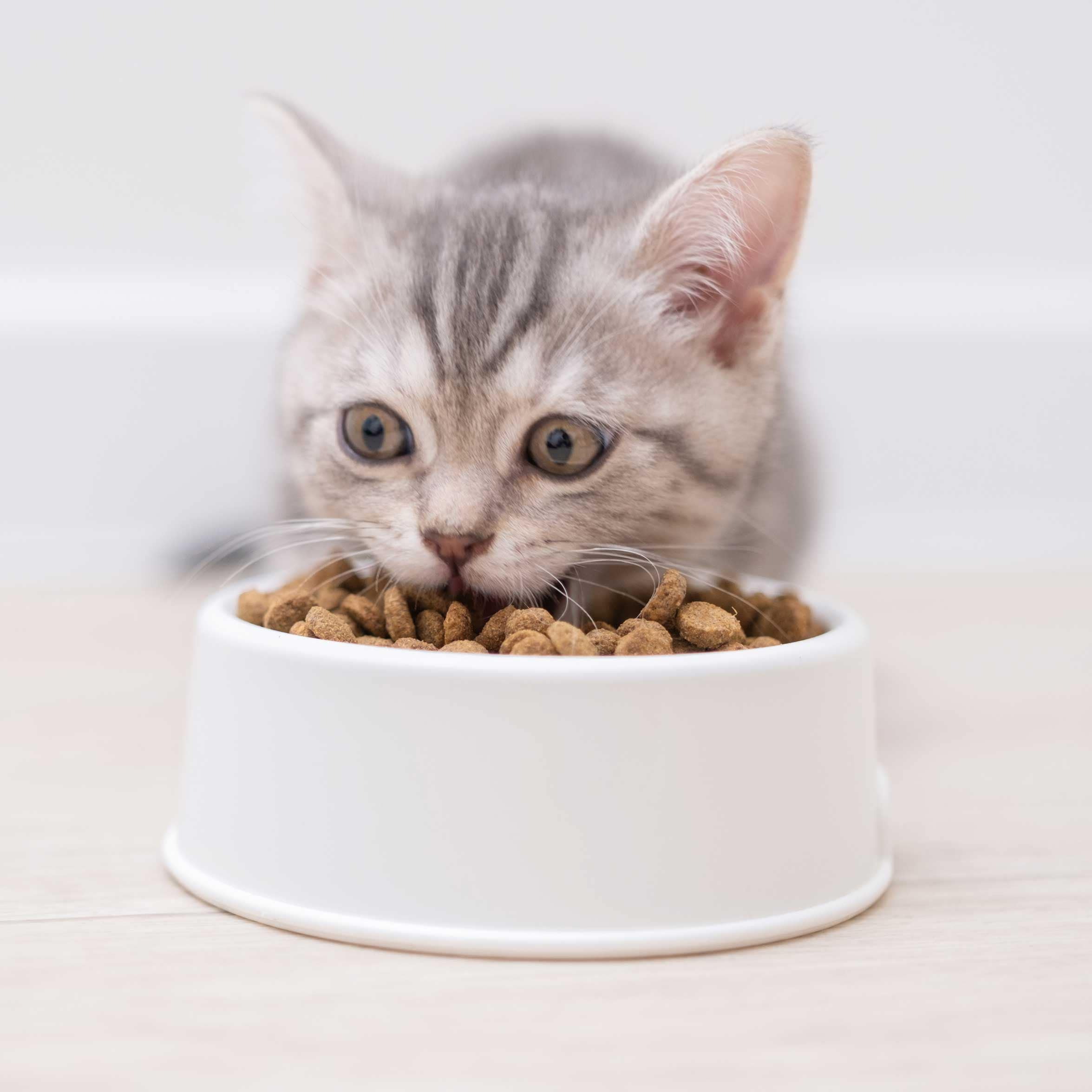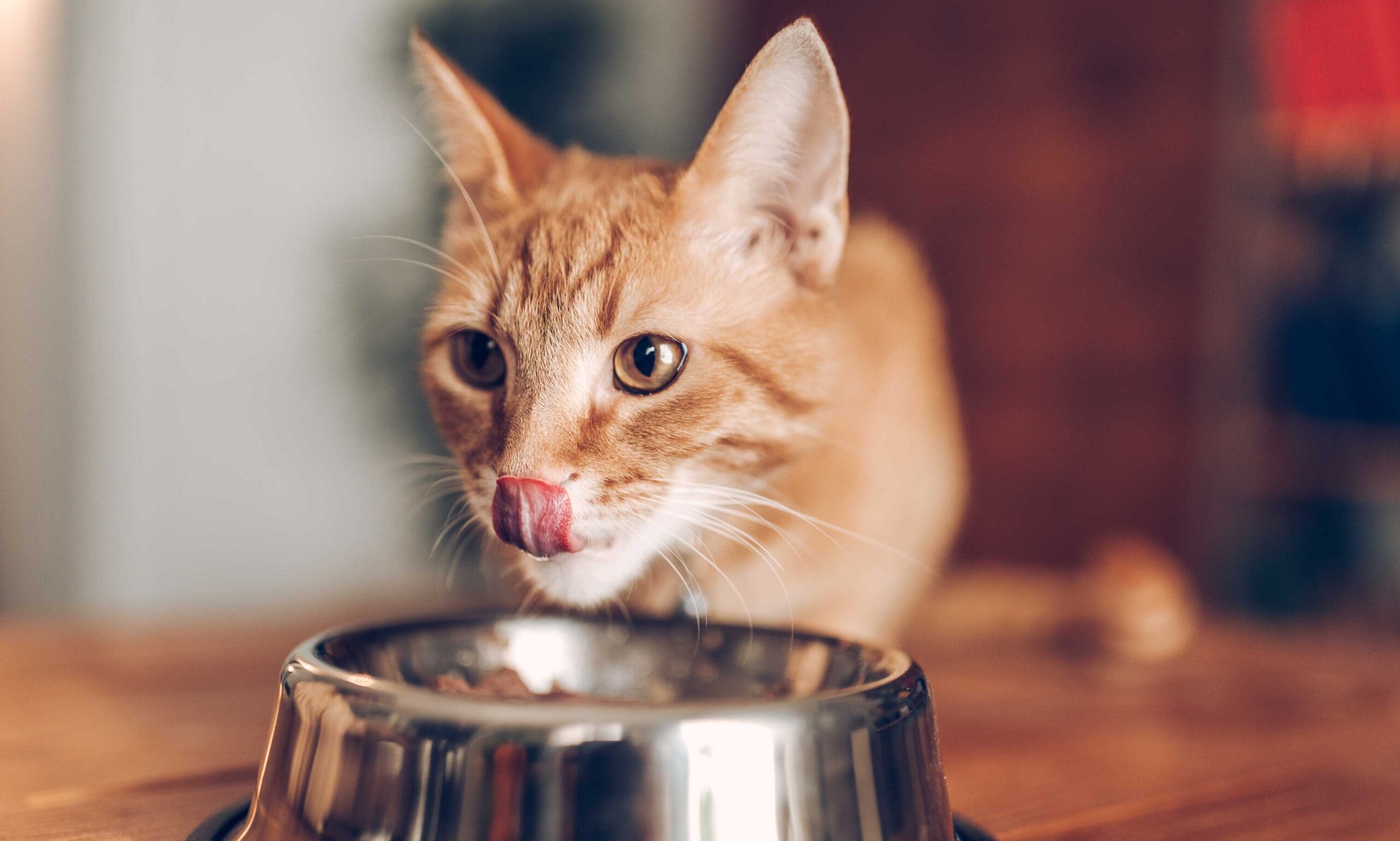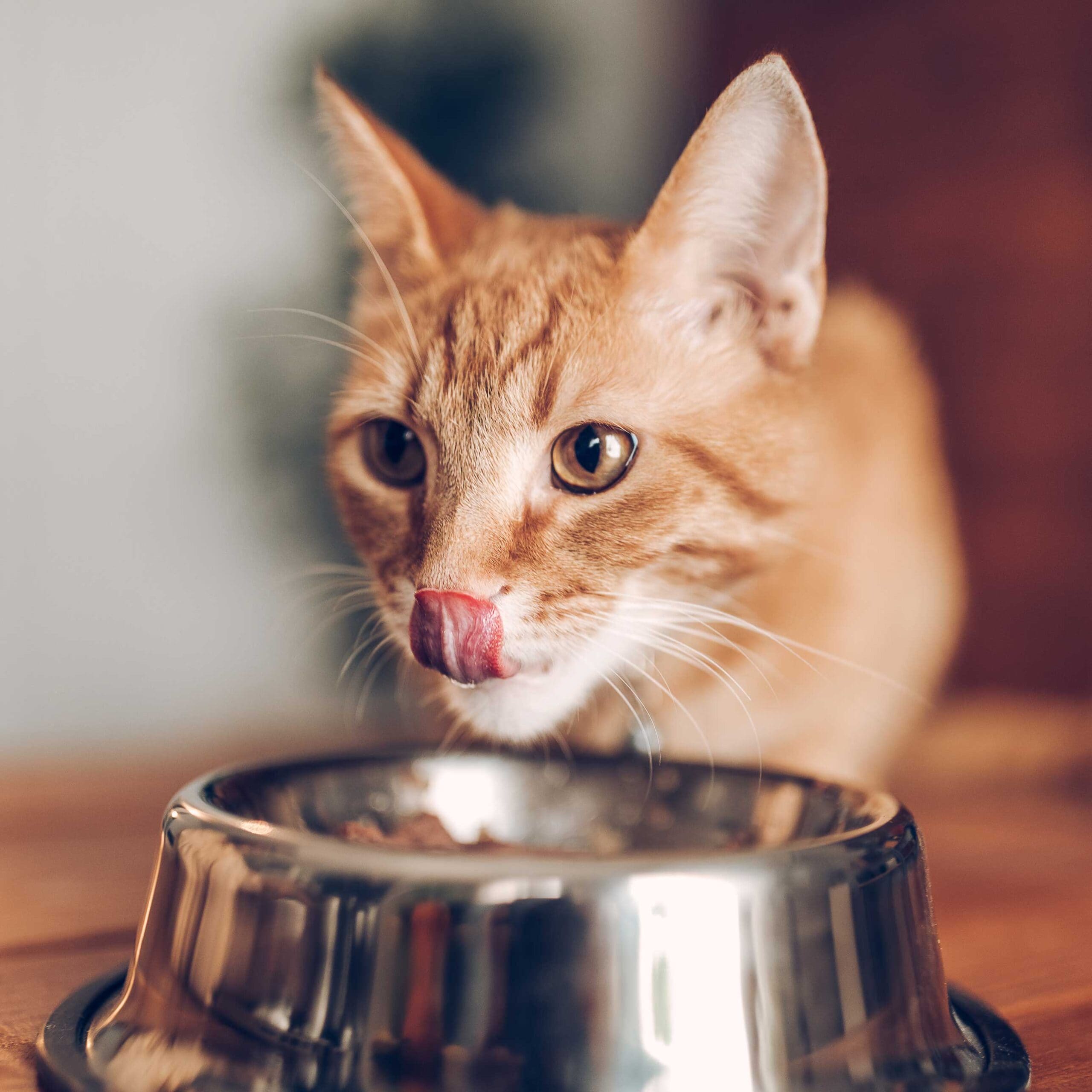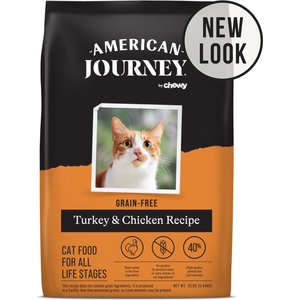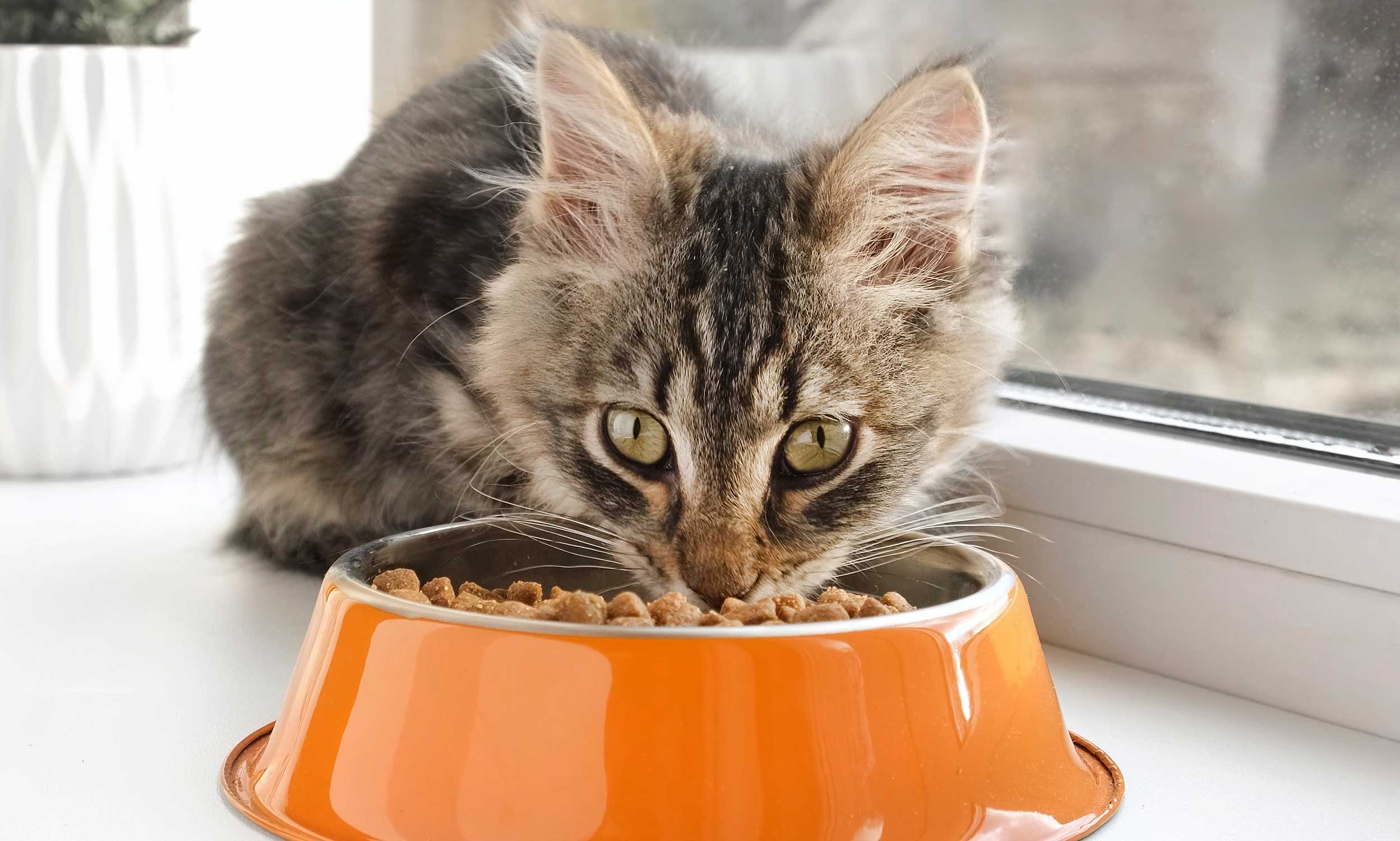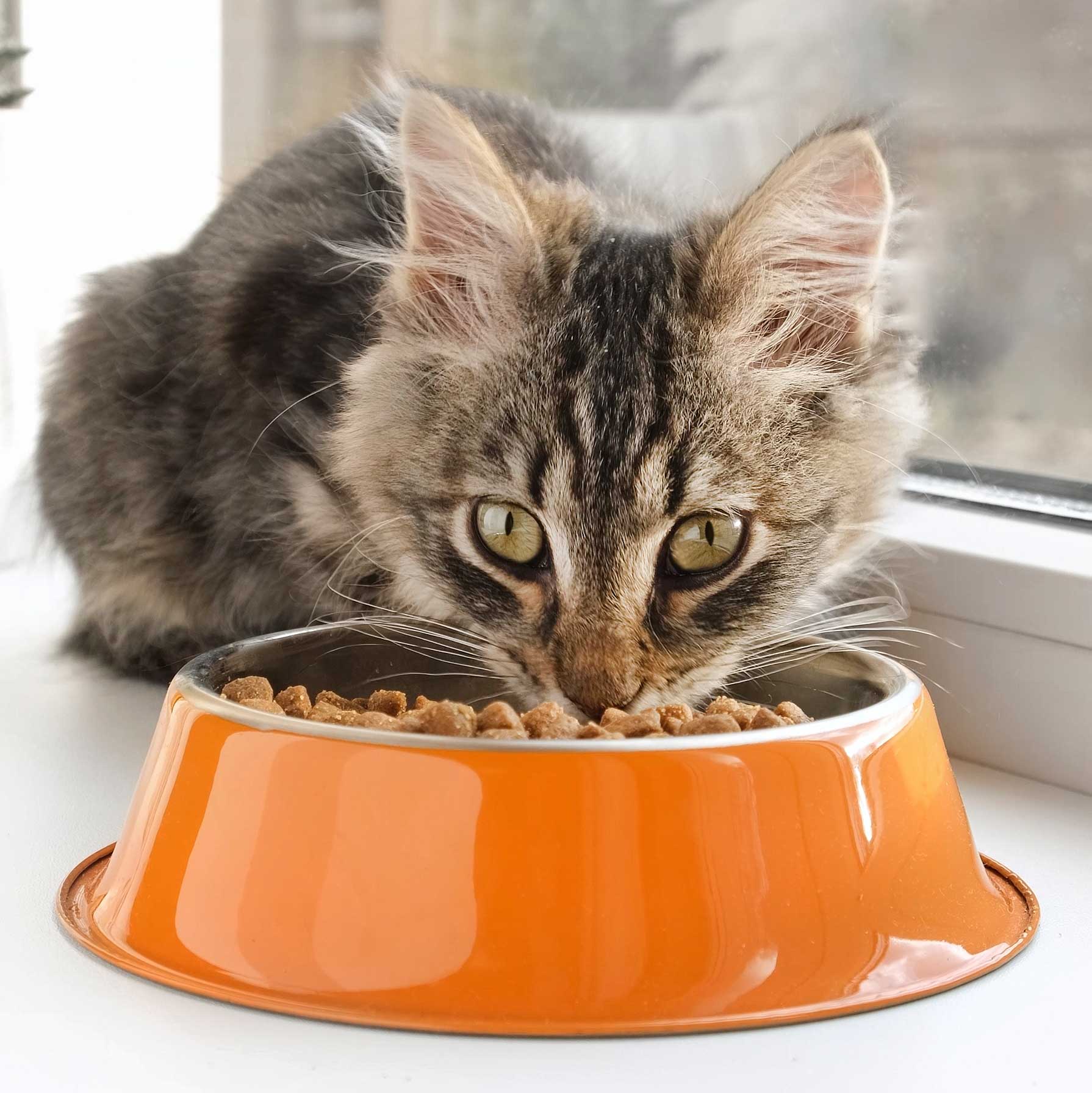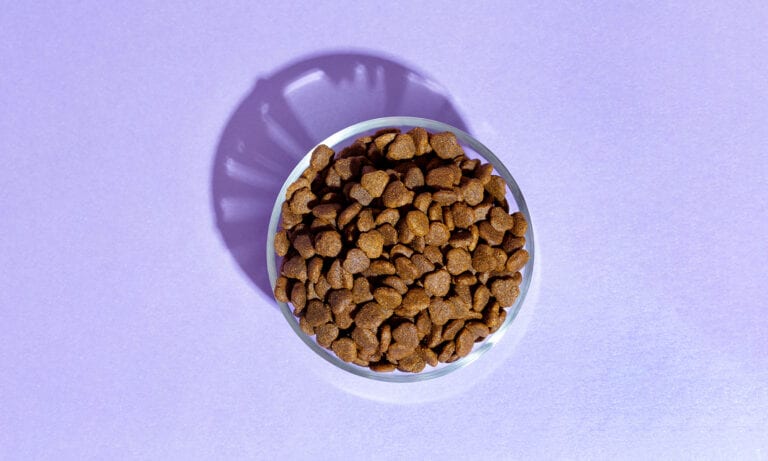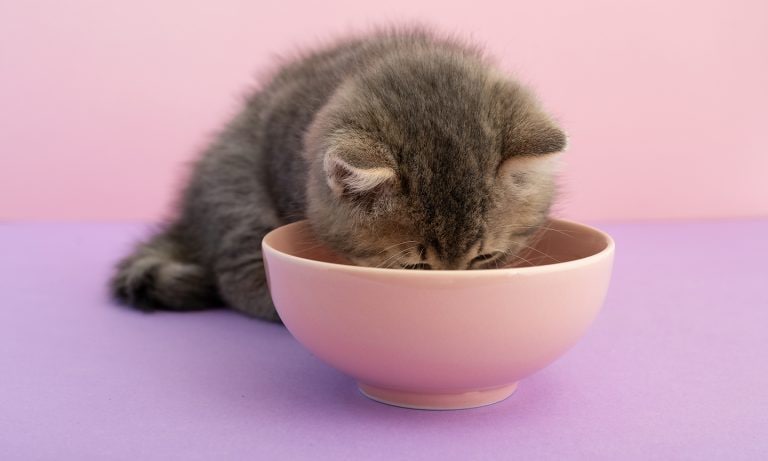Wondering what ages are kittens weaned, when to feed kittens adult food or what is the best cat food for all ages? When it comes to cat food, one size doesn’t fit all, and selecting the best cat food or a specialized diet for a feline companion can seem a little overwhelming with so many options available. A basic place to start is with a life stage formula. From there, keep your cat’s veterinarian involved so they can make recommendations according to any specific health needs, if needed.
"Try to buy a food labeled for the appropriate age range of your cat," says Dr. Zay Satchu, DVM, co-founder and chief veterinary officer of Bond Vet in Brooklyn, New York. "After that, look for a feeding guideline on the bag or can of food. That gives you a good starting point, and then you’ll need to fine-tune the amount in order to maintain a healthy body weight—your veterinarian can help guide you through this process."
To get started, refer to this guide on cat food for all ages and how to maintain optimum cat nutrition from kittenhood through adulthood.
Click to jump to each section:
Kittens (4 weeks—1 year)
What ages are kittens weaned and can begin eating commercial kitten food? Generally, kittens start to become interested in eating solid food at around 3 to 4 weeks old.
"You would start out by offering small amounts of canned food mixed with water to make it very soft, and then gradually add less water as the kitten grows," says Suzy Gray, BVetMed, DACVIM (SAIM), veterinary specialist with VCA Emergency Animal Hospital and Referral Center in San Diego, California, and author of the book "My Patients and Other Animals: A Veterinarian’s Stories of Love, Loss and Hope."
"Once they're eating solid food you can then add in some dry, again in small amounts initially, and soaking it in water can help them eat it," Dr. Gray adds.
Once kittens have fully weaned from their mother’s milk, the correct amount to feed them becomes the responsibility of the humans in the house. It’s easy to over- or underfeed, but veterinarians can help provide structure to set the kitten up for health in adulthood.
How much and how often to feed kittens
Kittens should eat about 1/2 to 1 cup of dry kitten food or 6 to 9 ounces of wet kitten food per day, divided into at least 3 meals, says Megan Teiber, DVM, associate veterinarian at Indian Prairie Animal Hospital in Aurora, Illinois, and a consultant for Tuft + Paw in Traverse City, Michigan.
Feeding instructions are designed to meet the specific dietary needs during kittens’ developmental stage.
What to feed kittens
Kittens need additional calories, protein, healthy fats and minerals such as calcium and phosphorus to allow for growth and healthy musculoskeletal development, Dr. Teiber says.
"Kitten diets are carefully formulated to meet these requirements. They should not be fed diets labelled for adult cats. These foods will not meet the energy requirements that are vital for proper growth," says Dr. Teiber.
Pay attention to ingredient labels and nutritional information and look to kitten-specific formulas, like Wellness CORE grain-free kitten formula dry cat food, that provide the recommended caloric intake, fats and proteins little ones need.
Adult (1 year—7 years)
When to feed kittens adult food depends on when they reach maturity—usually at around 1 year old, estimates Dr. Gray, although some larger cat breeds (such as Maine Coons) have a longer growth period and may still need to eat kitten food until they are 18 to 23 months old. Thus, you should consult your own veterinary when determining your cat’s maturity.
Once cats reach maturity, their dietary needs change from kittenhood, as their metabolism starts to slow, bodies mature and activity levels change.
What to feed adult cats
Look for options labeled as cat food for all ages, all life stages cat food or adult-specific, such as Tiny Tiger pate beef and poultry grain-free canned cat food or American Journey turkey and chicken grain-free dry cat food.
How much and how often to feed adult cats
The amount to feed an adult cat depends on many factors, all of which influence caloric requirements, Dr. Gray says, including:
- Activity level
- Metabolism
- Body size
Talk to your vet, who can give you a better idea of how much food your cat should eat.
As for how often, Dr. Gray recommends feeding adult cats twice a day.
"Kittens typically need more calories due to their activity level and all the energy they have to put into growing, but this is only for the first year of their lives, and continuing to feed an increased calorie count past this period can result in obesity," Dr. Gray says.
Should you free-feed your cat?
Dr. Gray does not recommend free feeding, aka leaving food out for your cat to eat whenever they want.
"The notion that cats will self-regulate their food intake is fiction, which my cats will attest to if they ever get into a cat food container accidentally left out," Dr. Gray says.
"Meal feeding cats from a young age means you can closely regulate their food intake, make adjustments if health problems such as obesity arise and determine if changes in food intake are a sign of ill health. One of the earliest signs of a cat not feeling well is a decreased appetite, and this is hard to assess if a cat is free fed.”
Should I feed my adult cat a special diet?
It's around the adulthood stage that diets might begin to address specific needs, such as weight control formulas for over- or underweight cats. Not all cats need special formulas, but some do.
“As pet owners, we’re lucky that nowadays there are a lot of different diets available to help with certain health conditions," Dr. Satchu says. "Often, the right diet can eliminate the need for medications and even save you money on vet visits."
Dr. Satchu encourages pet parents to talk to their veterinarian, as a specialized diet for your cat will be based on their age, gender, medical history and home lifestyle.
"Some cats may benefit from a change in the type of diet (such as from dry to wet food), using a food that contains certain supplements, or even a special prescription diet," Dr. Satchu says. "It’s best to seek one-on-one guidance from your veterinarian when choosing a food for a specific health condition."
Senior (7 years—10 and above)
Cats are considered seniors at around 7 to 10 years of age.
Diets for senior cats tend to have a lower caloric content but still include the ideal amounts of vitamins and nutrients for a maturing feline body.
Look for options with essential nutrients and fewer calories, like American Journey Senior Pate Canned Cat Food.
"Even though some cats are still feisty and young-at-heart until several years later, internally, their bodies can go through certain changes at this age that make them more prone to gaining weight or developing arthritis and other health conditions. So, a senior diet is usually best," Dr. Satchu says. "But there are exceptions, especially if your cat has food sensitivities or needs a prescription diet. Your veterinarian can help guide you through this decision.”
Tips for Transitioning to New Diets
The first transition cats will make to a different diet comes to an adult-specific or all life stages cat food when they become adults, but the process is the same every time they change foods—and it’s a gradual one. An abrupt diet change can create tummy troubles and digestion issues—in addition to the surprise of the new foods, which they might reject outright if not properly transitioned.
"Whenever you change diet, whether for a different life stage, or to a different flavor or brand, it is important that the transition is gradual," Dr. Gray says.
Dr. Gray generally recommends mixing small amounts of the new food with the current diet, and then gradually increasing the amount of new food over a 7- to 14-day period.
“This not only ensures that cats like the new food, but also that GI upset from a sudden change is avoided,” she says. “If GI upset is noted when transitioning foods, slowing down the transition or stopping and selecting a different food may be recommended.”
Every cat is different from the next, so keeping up with veterinary checkups and paying close attention to any behavioral changes are important factors when deciding on a proper diet and cat food for all ages.
"The most important thing to remember when feeding cats is that one size does not fit all!" Dr. Teiber says. "Each cat has unique needs. This is determined by their activity levels, weight and overall health. Please consult with your veterinarian to make sure you are feeding your cat appropriately."
More about feeding your cat:
Share:
